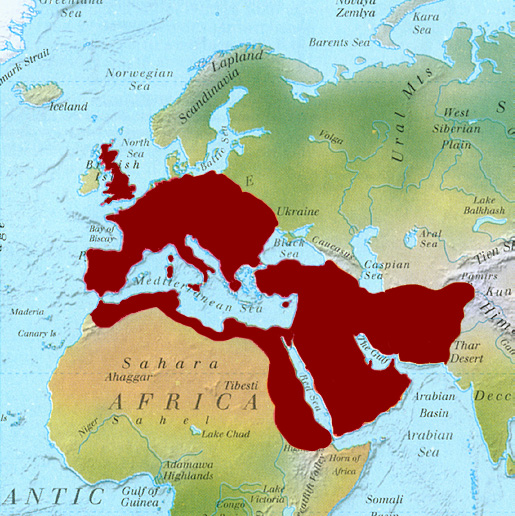jobiwan7
Jedi Scholar
Hi! I've read lots of different ideas for this, and have had lots of ideas for such a Mod bouncing around inside my head for a while, so I decided to make a rough timeline of them. I was hoping Xen or Sword of Geddon might assist me with this, since they had both showed interest in Roman alternate history. Anyway, here it is.
I realize that the 1800's aren't mentioned. I still need some ideas for that time period.
Please tell me what you think, or if you're interested. I can definitely not do this alone.
324 A.D.Constantine returns to Rome as its sole Emperor, and decides to rebuild it. He returns power and life to the city. The newly-rejuvenated Rome holds its own against the barbarians much better than it would have otherwise.
476 A.D.Marcus Viducius Marcellinus, an influential Roman politician, realizes that Rome has become a mere shadow of its former self, and convinces Roman Legatus (General) Lucius Vergilius Victorinus, to aid him in his campaign to restore Rome. While Vergilius prevents a Goth invasion, and re-conquers much of the Empires territory, Vicucius introduces classical Roman culture into it. A Roman Renaissance occurs, and the young emperor Romulus Augustulus is defeated by General Vergilius and his new legions. Viducius reforms the government, giving more power to the Senate, and assisting in the writing of the Constitutionis. After Vergiliuss death c. 495, Viducius becomes Imperator.
510 A.D.-1203 A.D.The Roman Empire expands over a vast area, shown below.

1203 A.D.Barbarians and general unrest force the Roman government to negotiate with many of its outlying provinces. In the Council of Helvetia (in Rhaetia, modern-day Switzerland) Rome agrees to let some provinces go, setting up new countries for the different peoples. Later, a similar council is held in Alexandria for several eastern provinces.
1492 A.D.Gaius Columbius Cristo, seeking a western route for trade with the east, asks the Imperator for ships and funding, which is quickly approved. Leaving from Hispania with many ships and men, he sets out for the east, but, of course, discovers the Americas. Many colonies are set up in Central and South America. The Romans form an alliance with the Inca tribe, who appear to be the most advanced, and have skill in road-building. Eventually many other Natives empires are conquered, and Rome is superior. Other European nations begin to colonize the new world.
c. 1776 A.D.After the English colonies succeed in gaining their independence, Romes colonies in the Americas revolt. Not wanting another major war, Rome gives them their independence and forms alliances with them. Contact with native tribes, and long isolation from Rome causes new Latin-based languages to develop in the New World.
1790 A.D.Seeing the rights given to the citizens of America in their Bill of Rights, the Roman people petition the Senate to amend the Constitutionis, but the tyrant Imperator vetoes every measure and refuses to accept Senate decisions. On August 27, the people succeed in ousting the tyrant, and transforming the Roman Empire into a more democratic society.
1914 A.D.Fearing Austria-Hungarys expansion into Roman-controlled Pannonia (Serbia), a radical assassinates Archduke Ferdinand. War breaks out.
1935 A.D.A Revolution in Libya brings the Carthaginian Party to power, declaring that they must restore the ancient Empires glory by retaking the Mediterranean. They invade the Roman provinces in Africa. Rome declares war on Libya and its allies, which include Nazi Germany. War begins.
I realize that the 1800's aren't mentioned. I still need some ideas for that time period.
Please tell me what you think, or if you're interested. I can definitely not do this alone.



